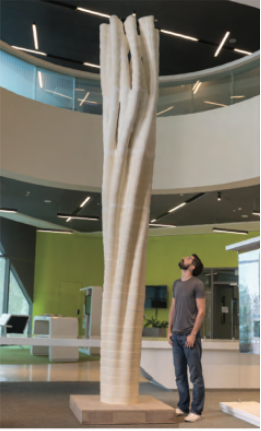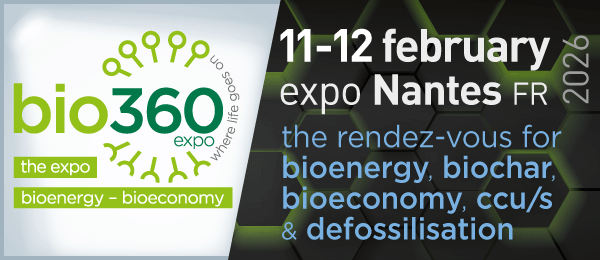Since its invention, plastic has become central in our way of life. In the 1950s, 0.5 million tons of plastic was produced yearly, and this has rocketed to 300 million tons today. However, only 3% of it is recovered and the remaining 97% accumulates in landfills and the sea. Recent research by Austrian scientists from the Medical University of Vienna also found the presence of plastics in the human digestive system.
Researchers at the Singapore University of Technology and Design (SUTD) took on the challenge of finding alternative solutions to the use of conventional plastic materials. Assistant Professors Javier Fernandez (Engineering Product Development) and Stylianos Dritsas (Architecture & Sustainable Design) successfully demonstrated that more sustainable ways of production were possible.

These researchers came up with FLAM (fungal-like adhesive material), a fully biodegradable and ecologically sustainable material made from cellulose and chitin, the two most common natural polymers and industrial byproducts on Earth. The cost of FLAM is less than $2/kg, similar to commodity plastics and is 10 times lower than the cost of common filaments for 3D printing. This material can also be used to 3D print large structures – such as the ‘Hydra’, a proof-of-concept designed to show the world what FLAM could do.
The researchers then launched Chitonous PTE. Ltd, a start-up based on the further development and commercialisation of the FLAM 3D process, the “first fully sustainable biological additive manufacturing process, capable of producing large-scale products at low-cost with unmatched environmental characteristics”.
According to the website, the process uses “natural materials available in every ecosystem, including highly urbanized environments. Linking the most ubiquitous natural resources with a freeform manufacture, this technology has been dubbed “the missing piece in circular economy” (engineering.com), enabling the production, fabrication, and degradation of materials and products in closed urban environments.”
Source
Bioplastics MAGAZINE, 2020-01-03.
Supplier
Chitonous PTE
Medizinische Universität Wien
Singapore University of Technology and Design SUTD
Share
Renewable Carbon News – Daily Newsletter
Subscribe to our daily email newsletter – the world's leading newsletter on renewable materials and chemicals











